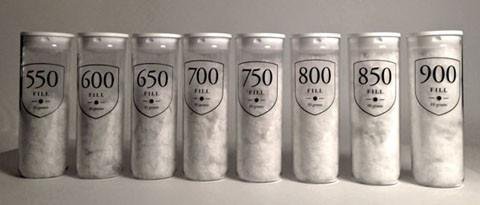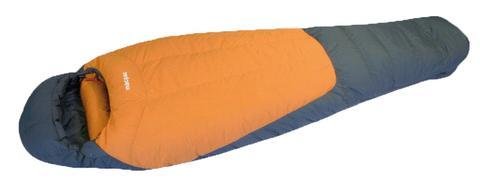Sleeping Bags: Down vs Synthetic
In life there are many times we are faced with tough decisions, boxers or briefs, Messi or Ronaldo, Game of Thrones or Breaking Bad? Well my friends choosing the right sleeping bag shouldn’t be one of them! I am here to take the stress out of this decision.
I know this can be a tough and confusing process, especially if this is your first outdoor, trekking or expedition sleeping bag. There are so many different choices on the market today all with their own pros and cons and you need to be educated on what to look out for because in the end, we all need our sleep, especially if you have an activity planned for the next day.
Well not to worry, I am going to talk you through exactly what you need to know. With the right information you will be able to go into store or online and pick the correct bag for you.
So kick back and relax and let’s see if we can pick you a great sleeping bag.
Down or Synthetic, this is the question
DOWN
Ok so the first thing you should know is that down is not made of feathers, it is actually a layer of plumage, the lofty, fluffy stuff underneath the feathers. It provides warmth to the bird by trapping tiny pockets of warm air making it nature’s best insulator. It is very breathable and also draws moisture out.
How do we measure down’s effectiveness? This is called “fill power” and it is very important that you understand fill power when picking your bag. Fill power is basically how many cubic inches one ounce of down can fill. You can get different “fill powers” of down but they typically range from 450 to 900, so basically 900 fill power will be the warmest and lightest, but this will be the most expensive.

PROS OF DOWN
An ounce of down is much warmer than an ounce of synthetic down. So far we have been unable to recreate the properties of good down, who knows in the future we may have synthetic down that will be just as warm as natural down, but at this moment in time and for the foreseeable future natural down wins in the warmth department.
Natural down is ultra-lightweight and compresses down amazingly well, exactly what you need on those long hikes and expeditions.
Natural down lasts much longer than synthetic. If you look after your natural down sleeping bag properly it will retain its shape and loft for 15 to 20 years plus.
CONS OF DOWN
The main problem with down is that if it becomes wet it effectively loses its insulating properties, it becomes clumpy and will not keep in any warmth.
When natural down becomes wet it takes a very long time to dry out, especially if you are in a humid climate.
When you are washing down you need to give it special attention, you can’t use harsh chemicals or you will damage the downs ability to provide loft. Never put down in the dryer.
Down insulation can cost a lot more than synthetic fill. If you are on a tight budget you should consider synthetic.
A good example of a very warm down sleeping bag is the Macpac Sanctuary 600. It is filled with 800 loft goose down and has the following temp rating:
SYNTHETIC
Synthetic down is a man-made material that tries to mimic natural down. Usually made from polyester the fibers are spun into a lofty material that fills the bag to provide insulation. Shorter thin strands fill any gaps to trap tiny pockets of air and larger thicker strands provide loft. Synthetic insulation has come a long way over the past number of years and there are some types of synthetic that come close to natural down in terms of weight to warmth ability.PROS OF SYNTHETIC
One of the major advantages of synthetic fill is that it is water resistant. This means that even when wet it will still have the ability to provide some heat, not as good as a dry sleeping bag but it still works.If down insulation gets wet the moisture attaches to the actual fibers, with synthetic insulation the moisture gets trapped in the air pockets rather than the fibers. This means that synthetic insulation will dry much quicker than down.
Synthetic is cheaper than down so you will be able to get a bag that will keep you warm for less money.
Synthetic insulation is hypoallergenic meaning that it will not cause any allergies.
CONS OF SYNTHETIC
Synthetic insulation is heavier and bulkier than down and therefore requires more volume and weight than a down bag to keep you at the same comfortable temperature. If you compare two bags, both rated to -10c, the synthetic one will weigh heavier and will take up more room in your pack.Synthetic insulation will gradually breakdown, lose its loft and warmth. It does not matter how well you care for the bag it will still degrade quicker that a down bag. If you are an avid outdoors person who camps a lot you will find yourself having to replace the bag more often than if you had a down bag.
MY ADVICE
In my opinion, the only reasons someone should go with synthetic over down is if they are going to be spending most of their time in wet conditions or they are on a tight budget.
Down insulation is king, it is warmer, lighter, compresses better and lasts much longer than synthetic. My advice is to invest a little more money now in a bag that you will be happy with.


Hey @scolari-ire, I am so happy I found your page. Great information. I look forward to following you.
Hey Brooke, great to meet you. I have just read your introduction post and will follow you straight away, you have a great energy about you, well that what I'm getting from your post :-)
I'm working on my introduction post and am think about it being a video montage :-)
Thank you, @scolari-ire, I appreciate it, and do it! I'll make sure to check back.
Thank you for these advices.. I live full time in a rooftop tent so maybe I should invest in a good sleeping bag.. But I think now winter is over, so I'll think about this in next winter... This one (-8°C in maximum) I made without one... 🤗
Hey, when you said rooftop I didnt know what you meant until I went to your introduction post and saw the picture, it looks really cool :-)
If it was me living full time in a tent I would definitely look at getting a winter sleeping bag, you are correct, it is nearly summer (although you would not think it in Ireland with all the snow we got last week, you should check out my video).
uuuh.. freezing =) No I'm fine with enough blankets in my tent. I have the space to store it so it's more comfortable with normal blankets.. I miss the space to turn around in sleeping bags...
I can already tell your going to be really successful here brother. Great detail in your posts.
Convenient for travelling.
For sure :-)
Down with a 'dryloft' outer shell all the way. Best of both worlds. Waterproof and breathable , you can just bivy in the snow without a tent in one.
Agree. It can be a bit more expensive though :-)
What I like to do is use a gortex bivi bag, this allows me to bivi even if there is a torrential rain storm outside and it can then be used with other sleeping bags.
Given the choice between an tent and a bivi I will pick a bivi every time :-)